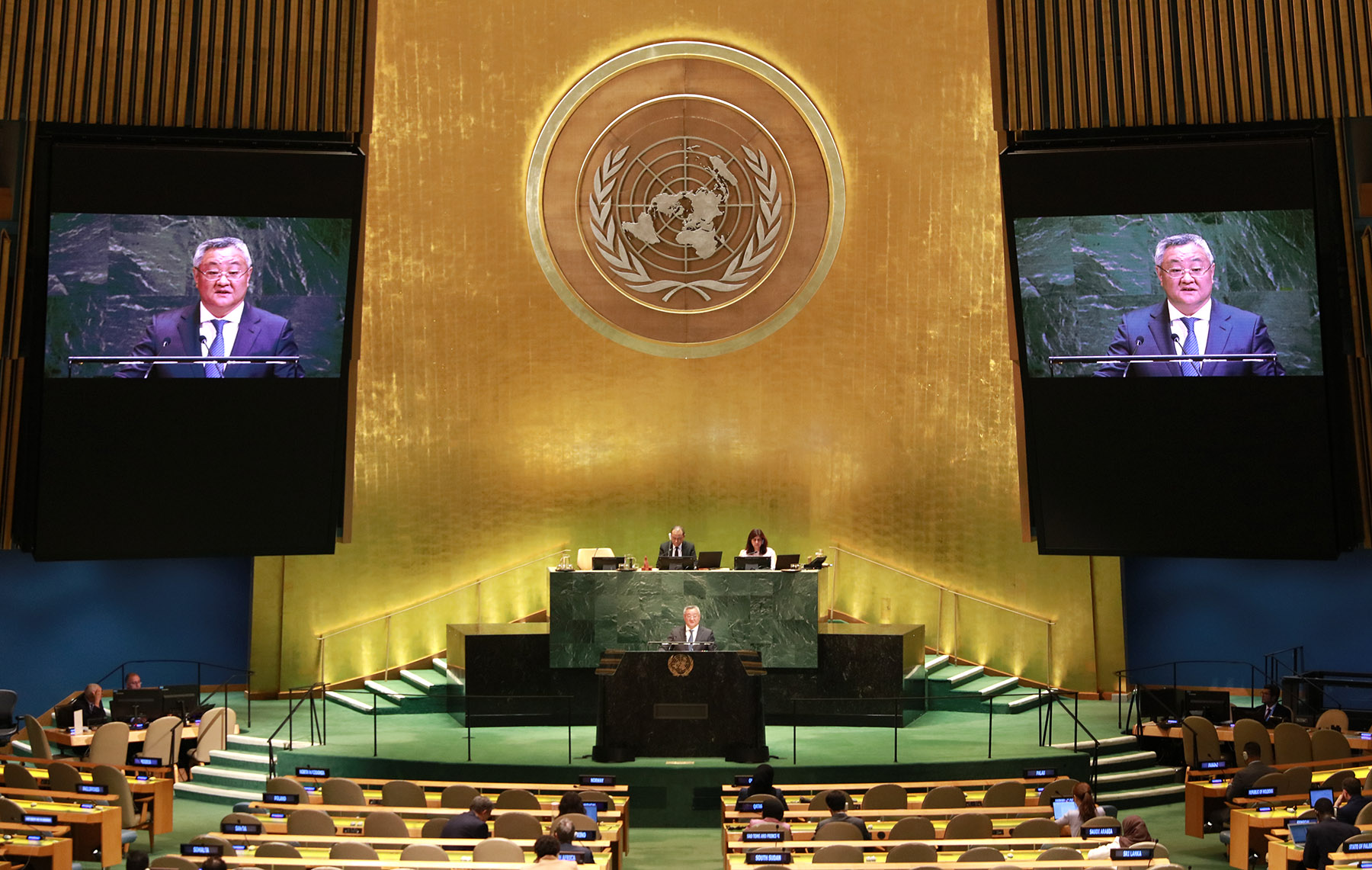Takaichi’s recent remarks remind of past excuses in attacking China and the US

The international community should remain vigilant on attempts of Japanese politicians and right-wing forces in exploiting populism to revive militarism, as indicated by Japanese Prime Minister Sanae Takaichi’s recent sinister comments on Taiwan of China, according to officials and observers.
Earlier this month, Takaichi became the first incumbent Japanese prime minister to publicly suggest in Japan’s parliament the country’s possible military intervention in Taiwan in the event of what she called a “survival-threatening situation”.
However, Article 9 of Japan’s pacifist Constitution clearly states that “the Japanese people forever renounce war as a sovereign right of the nation and the threat or use of force as means of settling international disputes”, and “the right of belligerency of the state will not be recognized”.
Chinese Foreign Ministry spokeswoman Mao Ning told a daily news briefing on Nov 19 that history shows that launching aggression against other countries under the pretext of a “survival-threatening situation” and “self-defense” has always been a convenient tactic of Japanese militarism.
The right of collective self-defense outlined in the United Nations Charter was created to safeguard the collective security of the international community and prevent the revival of fascist forces, said Mao, adding that Japan has been restricted from exercising this right since the end of World War II.
In 1931, Japan took “whether Manchuria (Japan’s terminology at that time for Northeast China) is secured” as a matter of “Japan’s survival”, using this as an excuse to instigate the September 18 Incident, which marked the start of the Chinese People’s War of Resistance Against Japanese Aggression (1931-45).
Tokyo’s decision to attack Pearl Harbor was also made in the name of a “survival-threatening situation”, thereby igniting the Pacific War.
“The alarm has been sounded; such tragedies must never be repeated,” said Mao.
On the occasion of the 80th anniversary of the victory in the Chinese People’s War of Resistance Against Japanese Aggression and the World Anti-Fascist War, “the international community must remain highly vigilant and resolutely thwart any attempts to revive militarism, jointly uphold the postwar international order and safeguard world peace”, she added.
Speaking at the UN General Assembly’s plenary meeting on Security Council reform, China’s Permanent Representative to the UN Fu Cong said on Nov 18 that Takaichi’s remarks are “an affront to international justice, damage the postwar international order, trample on the basic norms of international relations, and represent a blatant departure from Japan’s commitment to peaceful development”.
Analysts said that the shadow of militarism has not vanished from Japanese politics and that Takaichi is fanning populist enthusiasm for waging war.
“For the LDP and Takaichi, they are seeking to secure governing status when struggling to make the Cabinet function properly. What Tokyo is doing now is to tackle domestic challenges at the cost of the outside world,” said Su Xiaohui, an associate research fellow at the China Institute of International Studies.
“Takaichi is in bad need of support by right-wingers to boost her ruling status, so it is no surprise to see her having made such provocative remarks for her selfish interests,” she said.
Regarding a survey conducted by Japanese news agencies to gauge respondents’ support for the exercise of Japan’s right to collective self-defense “in the event of a Taiwan contingency”, Kiichiro Hatoyama, a lawmaker in Japan’s House of Representatives and son of former Japanese prime minister Yukio Hatoyama, criticized the poll, saying that it “is highly inappropriate for the media to pose such an obviously unreasonable question to the general public”.
Hiroyuki Nishimura, a Japanese social media influencer with over 2.6 million followers on X, tweeted on Nov 16 that “instead of getting carried away by the emotional arguments of irresponsible netizens or celebrities trying to provoke China, we should listen to the opinions of people working in the real world and farmers”.
Kazuhiko Shigetoku, a member of the House of Representatives with the Constitutional Democratic Party of Japan, told Japanese Foreign Minister Toshimitsu Motegi in the parliament on Nov 18 that “it would be extremely undesirable if negative impacts are seen in economic relations with China”, adding, “I urge you to resolve the situation as soon as possible.”
China confirmed on Nov 19 that it is suspending imports of Japanese aquatic products, citing safety concerns and public backlash.
“Given the current situation, even if Japanese aquatic products were exported to China, there would be no market for them,” said Mao, the Foreign Ministry spokeswoman.
Contact the writers at zhangyunbi@chinadaily.com.cn


